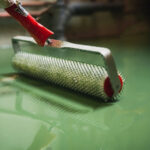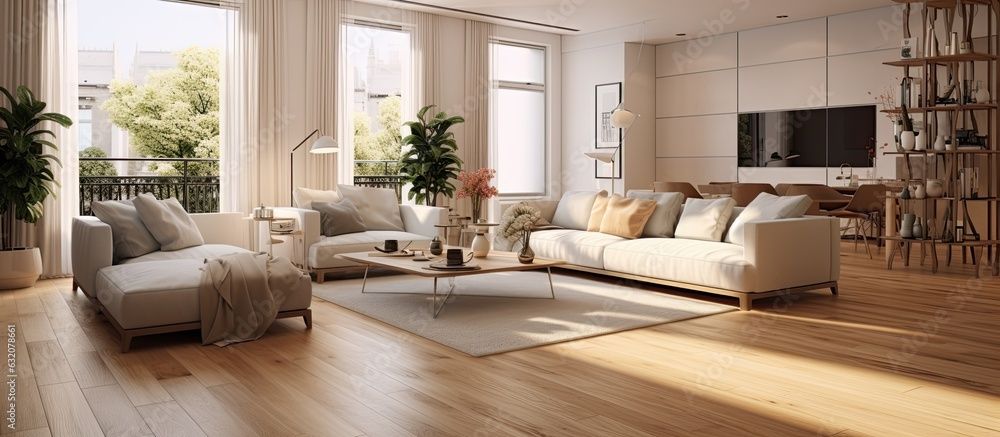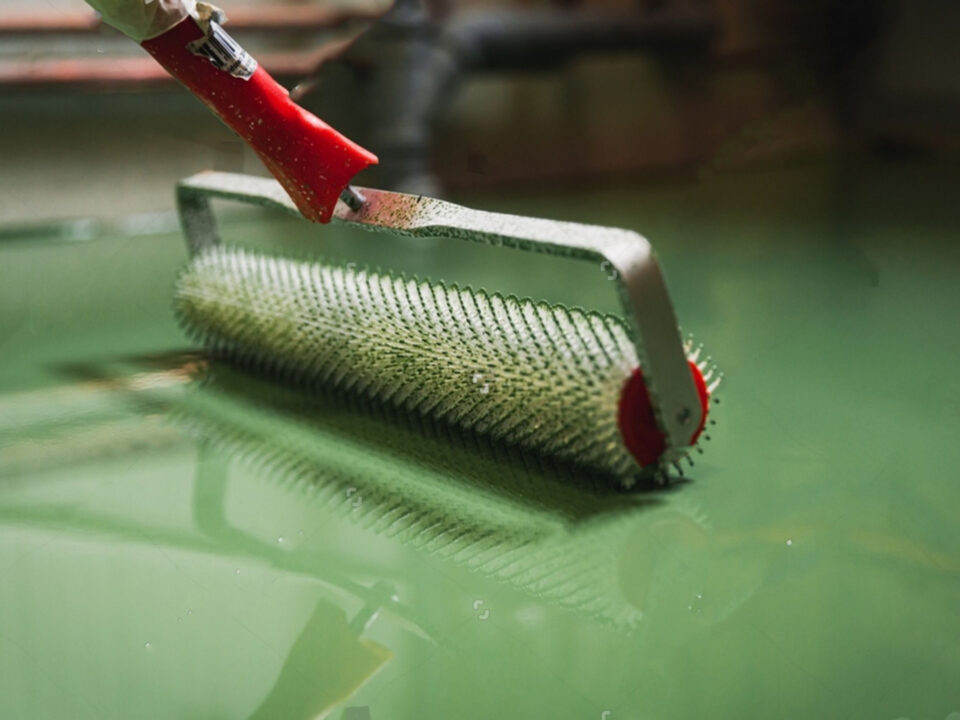
Flooring company in Islamabad
April 23, 202450 Benefits of Flooring
Flooring plays a pivotal role in enhancing the functionality, aesthetics, and comfort of a space. From the timeless elegance of hardwood to the versatility of vinyl, flooring offers a multitude of benefits. Durability is a hallmark, with options capable of withstanding heavy foot traffic and maintaining their pristine appearance for years. Alongside durability comes aesthetic appeal, as flooring materials come in a myriad of colors, textures, and patterns to suit any design preference. Comfort is not compromised, with choices ranging from plush carpets to cushioned cork, providing a soft and inviting surface underfoot. Additionally, flooring contributes to insulation, sound absorption, and even air quality, fostering a healthier and more comfortable indoor environment. Easy maintenance is another advantage, with many options requiring minimal upkeep to preserve their beauty. Whether it’s the water resistance of tile in bathrooms, the warmth of carpet in bedrooms, or the sleekness of laminate in living areas, flooring caters to diverse needs and preferences, ultimately enhancing the overall quality and value of a space.”
1. Durability: Many flooring materials, such as hardwood and tile, are highly durable and can withstand heavy foot traffic.
2. Aesthetic Appeal: Flooring can enhance the visual appeal of a space, complementing its design and style.
3. Comfort: Certain flooring materials, like carpet, provide a soft and comfortable surface underfoot.
4. Insulation: Flooring materials can contribute to insulation, helping to maintain a comfortable temperature indoors.
5. Easy Maintenance: Some flooring options, such as laminate and vinyl, are easy to clean and maintain.
6. Hygiene: Flooring materials like tile and laminate are non-porous, making them resistant to bacteria and mold growth.
7. Longevity: Quality flooring can last for decades with proper care, offering long-term value.
8. Increased Property Value: High-quality flooring can enhance the value of a property, making it more attractive to potential buyers.
9. Variety of Options: There is a wide range of flooring materials available, allowing homeowners to choose based on their preferences and needs.
10. Versatility: Different flooring materials are suitable for various areas of the home, from kitchens to bathrooms to living spaces.
11. Sound Insulation: Some flooring materials, like carpet and cork, absorb sound, reducing noise levels within a room.
12. Child-Friendly: Certain flooring options, such as rubber or cork, provide a safe and cushioned surface for children to play on.
13. Pet-Friendly: Durable and scratch-resistant flooring materials are ideal for homes with pets.
14. Allergy-Friendly: Hard flooring surfaces, like hardwood and tile, are easier to clean and can help reduce allergens in the home.
15. Water Resistance: Materials like vinyl and tile are water-resistant, making them suitable for areas prone to moisture, such as bathrooms and kitchens.
16. Environmentally Friendly: Some flooring options, like bamboo and cork, are renewable and eco-friendly.
17. Enhanced Lighting: Light-colored flooring can reflect natural light, brightening up a room and reducing the need for artificial lighting.
18. Easy Installation: Certain flooring materials, such as laminate and vinyl planks, are designed for easy DIY installation.
19. Customization: Many flooring options come in a variety of colors, patterns, and textures, allowing homeowners to customize their space.
20. Resale Appeal: Upgrading flooring can significantly enhance the overall look and appeal of a home when selling.
21. Stain Resistance: Some flooring materials, like porcelain tile and luxury vinyl, are resistant to stains, making them easy to clean and maintain.
22. Odor Resistance: Non-porous flooring materials are less likely to absorb odors, helping to keep the home smelling fresh.
23. Low Maintenance Costs: While initial costs vary, many flooring options have low long-term maintenance expenses.
24. Health Benefits: Certain flooring materials, such as cork and rubber, offer ergonomic benefits, reducing strain on joints and muscles.
25. Anti-Slip Properties: Textured flooring surfaces provide better traction, reducing the risk of slips and falls.
26. Moisture Control: Flooring materials like engineered hardwood are designed to withstand fluctuations in humidity, minimizing warping and buckling.
27. UV Resistance: Flooring materials that are UV-resistant, like ceramic tile, retain their color and finish even when exposed to sunlight.
28. Eco-Friendly Manufacturing: Some flooring options are manufactured using sustainable practices and recycled materials, reducing environmental impact.
29. Increased Comfort: Underfloor heating systems can be installed beneath certain flooring materials, providing warmth and comfort during colder months.
30. Improved Air Quality: Hard flooring surfaces are easier to clean and less likely to trap dust and allergens, contributing to better indoor air quality.
31. Enhanced Acoustics: Certain flooring materials, such as carpet and cork, absorb sound waves, reducing echo and improving acoustics in a room.
32. Flexibility: Floating floor systems, like laminate and engineered hardwood, can be installed over existing flooring without the need for extensive preparation.
33. Aging in Place: Flooring materials that offer slip resistance and smooth transitions between rooms are ideal for aging homeowners who plan to stay in their homes long-term.
34. Seamless Appearance: Certain flooring options, like seamless epoxy flooring, create a smooth and uniform surface without visible seams or grout lines.
35. Fire Resistance: Some flooring materials, such as ceramic tile and concrete, have inherent fire-resistant properties, making them suitable for high-risk areas.
36. Easy Repair: Individual tiles or planks in certain flooring systems can be replaced without the need to replace the entire floor, making repairs more manageable.
37. Pest Resistance: Flooring materials like concrete and tile are inhospitable to pests like termites, reducing the risk of infestations.
38. UV Protection: Flooring materials with built-in UV protection, such as luxury vinyl plank, are less prone to fading and discoloration when exposed to sunlight.
39. Chemical Resistance: Certain flooring materials, such as epoxy and concrete, are resistant to chemical spills and stains, making them ideal for garages and workshops.
40. Slip Resistance: Textured flooring surfaces, like non-slip vinyl and rubber, provide better traction, reducing the risk of slips and falls, especially in wet areas.
41. Impact Resistance: Flooring materials with high impact resistance, like porcelain tile and laminate, are less likely to chip or crack, even under heavy use.
42. Low VOC Emissions: Some flooring options, like low-VOC carpet and bamboo, emit fewer volatile organic compounds (VOCs), contributing to better indoor air quality.
43. Moisture Barrier: Certain flooring systems, like engineered hardwood with a moisture barrier, help prevent moisture from seeping into the subfloor, reducing the risk of damage.
44. Pet Stain Resistance: Flooring materials like luxury vinyl are designed to resist pet stains and odors, making them ideal for homes with pets.
45. Ease of Cleaning: Smooth, non-porous flooring surfaces are easy to clean with regular sweeping and mopping, requiring minimal maintenance.
46. Anti-Fungal Properties: Some flooring materials, such as cork and linoleum, have natural anti-fungal properties, inhibiting the growth of mold and mildew.
47. Scratch Resistance: Certain flooring options, like high-quality laminate and luxury vinyl, are scratch-resistant, maintaining their appearance even in high-traffic areas.
48. Ergonomic Benefits: Flooring materials with cushioned underlay, like cork and rubber, provide ergonomic benefits by reducing fatigue and strain on joints.
49. Seamless Transitions: Transition strips and molding accessories ensure smooth transitions between different types of flooring materials, creating a cohesive look throughout the home.
50. Ease of Installation: Click-lock flooring systems, like laminate and luxury vinyl, can be installed quickly and easily without the need for adhesive or special tools.


